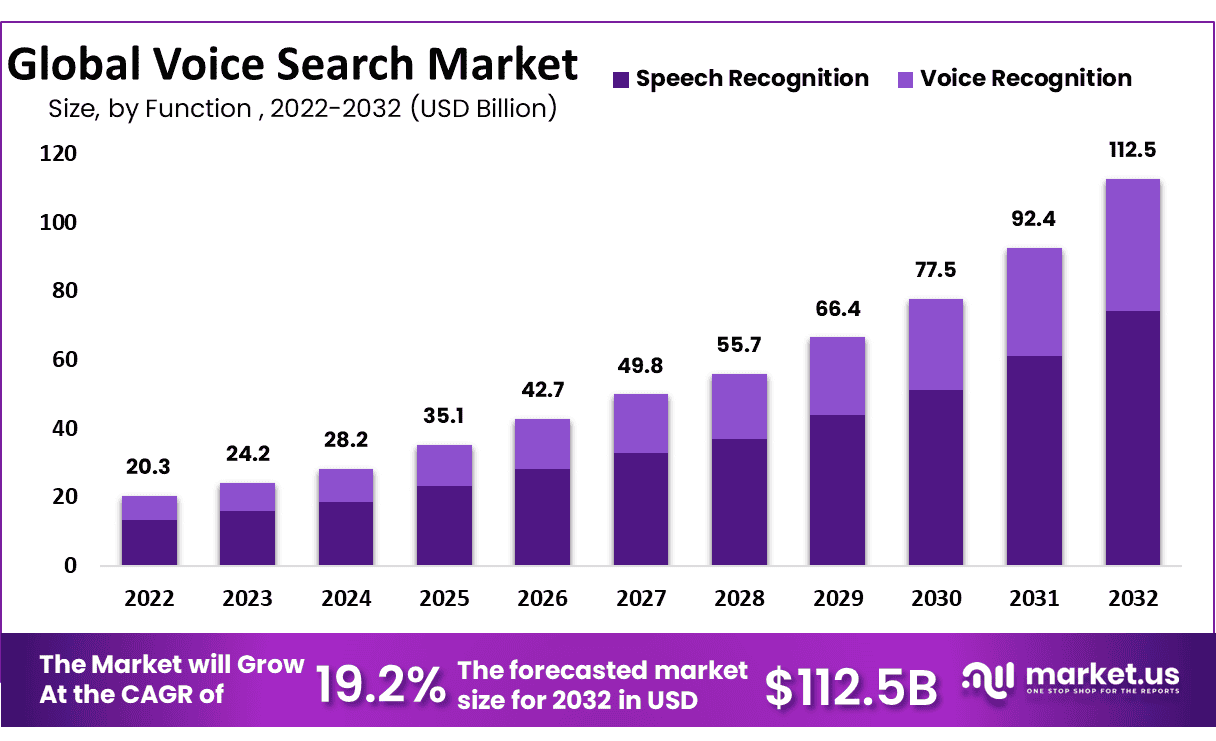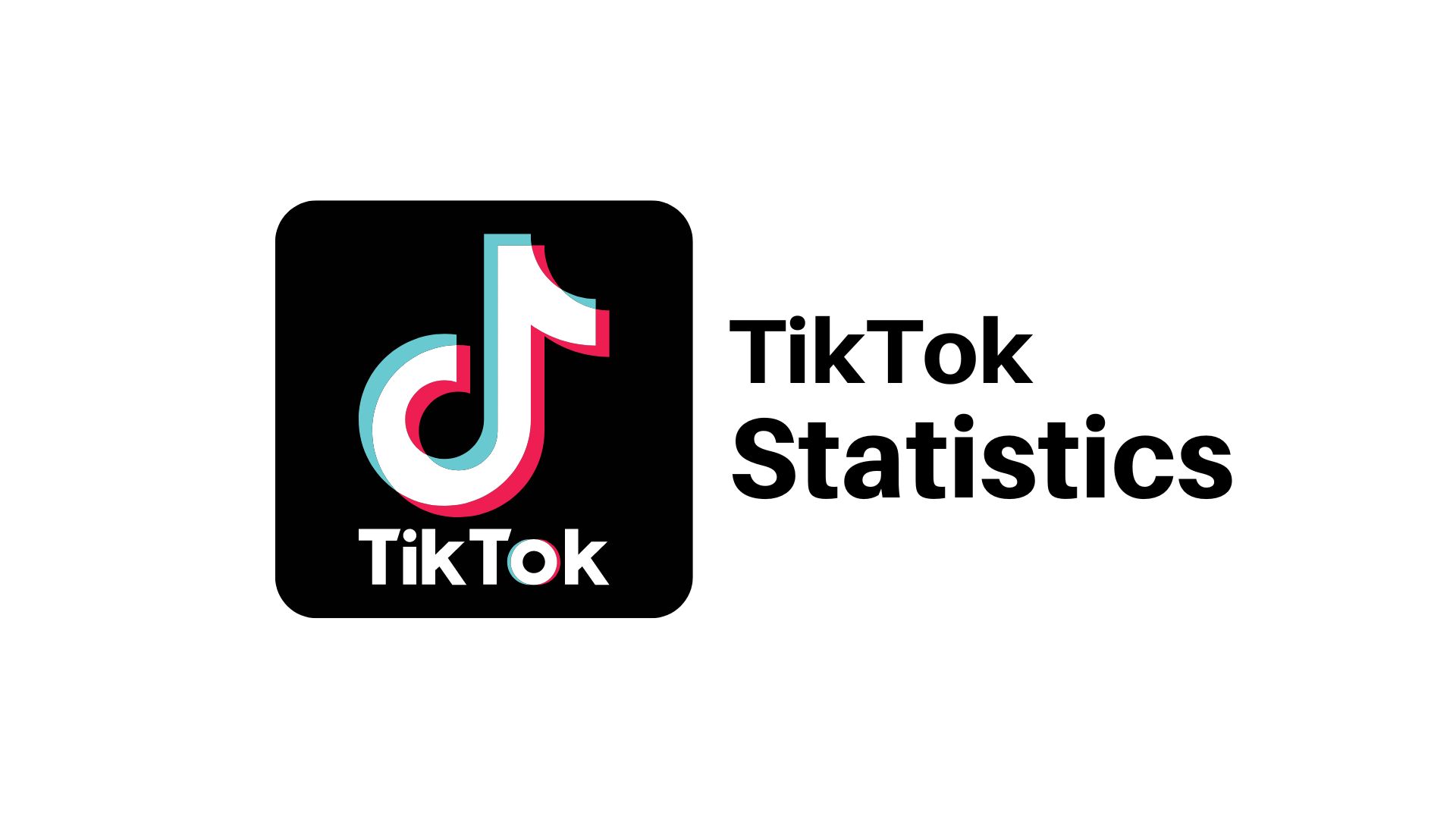Voice Search Market projected to reach USD 112.5 billion by 2032

Page Contents
Introduction
Voice search technology, which allows users to perform searches on the internet or operate devices using voice commands, has revolutionized user interaction with digital platforms. This innovation leverages advanced natural language processing (NLP) and machine learning algorithms to understand and process spoken queries, thus offering a hands-free and efficient alternative to traditional text-based searches. The voice search market has witnessed substantial growth, driven by the increasing adoption of smart speakers, smartphones, and voice-assisted applications across various sectors, including retail, healthcare, and home automation. Recent data indicates that the market size for Voice Search is expected to reach USD 112.5 billion by 2032, with a Compound Annual Growth Rate (CAGR) of 19.2% from 2023 to 2032.
the driving factors behind the growth of the voice search market include the rising popularity of smart home devices, advancements in artificial intelligence (AI) and NLP technologies, and the growing consumer demand for convenient and fast search options. The integration of voice search into mobile devices and home systems has also contributed to its widespread use, making it an indispensable feature for many users.
Opportunities within the voice search market are vast and varied. The ongoing enhancement of AI and machine learning algorithms presents an opportunity for the development of more accurate and context-aware voice-assisted services. Additionally, there is significant potential for growth in emerging markets, where internet penetration is increasing, and digital infrastructure is improving. The integration of voice search functionalities into a wider range of devices and platforms offers another avenue for expansion. Furthermore, as privacy and data security concerns become more prominent, there is an opportunity for innovation in secure and privacy-preserving voice search technologies.
For More Vertical Insights on the Market, Download a PDF Sample

Key Takeaways
- The speech recognition segment holds a predominant position in the global voice search market, commanding a 66% market share. This dominance underscores the critical role of speech recognition technology in interpreting and processing human voice inputs effectively.
- In terms of infrastructure, the cloud segment emerges as the most profitable, capturing a 59% market share. This indicates a significant shift towards cloud-based voice search solutions, offering scalability, flexibility, and enhanced data processing capabilities.
- Surprisingly, the non-AI-based segment claims a substantial portion of the market, with a 73% share. Despite the surge in AI-driven solutions, non-AI technologies continue to offer valuable contributions to the voice search ecosystem, expected to maintain a steady CAGR throughout the forecast period.
- Within specific industries, the healthcare sector stands out, accounting for the highest revenue share at 29%. This highlights the increasing adoption of voice search technologies in healthcare applications, from patient assistance to administrative operations.
- Geographically, North America leads the global landscape with a 33% market share, anticipated to witness significant growth. The region's technological infrastructure and early adoption trends support a favorable environment for voice search advancements.
- Regarding usage devices, smart speakers were utilized for 30% of voice search queries in 2023, while smartphones dominated with 60% usage. Smartwatches and other devices filled the remaining segment, showcasing the diverse platforms for voice search interactions.
- Consumer behavior has shown a marked increase in voice search usage, with over 50% using this feature daily in 2023, a jump from 40% in 2022. Predictions suggest daily usage will reach 60% by 2024, emphasizing the growing reliance on voice search for information retrieval.
- The accuracy of natural language understanding for simple queries has achieved an impressive 90%, nearing human-level comprehension. However, complex query accuracy remains lower, between 70-80%, indicating areas for further enhancement.
- The adoption of voice search on smart home devices has seen rapid growth, with over 40% of smart speaker owners utilizing voice commands in 2023. This trend underscores the expanding role of voice search in home automation and control.
- The global user base for voice search has expanded to an estimated 125.2 million people in 2024, up from 123.5 million in 2022, reflecting continuous growth in this digital interaction method.
- Among all devices, smartphones are the preferred choice for voice search, representing 27% of total usage. This preference highlights the ubiquitous nature of smartphones and their convenience for voice-based interactions.
- The appeal of voice search lies in its efficiency and ease of use, with 70% of people valuing its speed and 90% finding it simpler than typing queries, showcasing the user-friendly aspect of voice technology.
- In the United States, 36.6% of the population engages with voice assistants, with 66% of these users interacting with their assistants on a weekly basis, highlighting the routine integration of voice search into daily activities.
- Voice assistants demonstrate a high level of proficiency, accurately responding to 93.7% of search queries, indicating the advanced capabilities and reliability of current voice search technologies.
- The practical applications of voice search extend to commerce, with 34% of people having ordered takeout food and 26% having made a purchase through voice search, illustrating the commercial potential of voice search interfaces.
- In the competitive landscape, Google retains a leading position in voice assistant market share across most countries, while Amazon Alexa holds a strong second place with approximately 25% share, reflecting the diverse preferences among voice search users.
- The convenience and efficiency of voice search are widely recognized, with 90% of users preferring it over traditional text-based searches due to its faster and easier nature.
- The utility of voice search in everyday life is evident, with 51% of users searching for restaurant businesses and 66% checking the weather via voice assistants, showcasing the versatile applications of voice search technology in providing timely and relevant information
Emerging Trends
- Increased Integration with IoT Devices: The integration of voice search functionalities with Internet of Things (IoT) devices is becoming more prevalent. This trend enables users to perform searches and control smart home devices using voice commands, thereby enhancing the utility and adoption of both voice search and smart home technologies.
- Enhanced Natural Language Understanding (NLU): Developments in NLU are enabling voice search technologies to better understand and process complex queries. This advancement allows for more accurate and contextually relevant search results, improving the overall user experience.
- Personalization Through AI: Artificial intelligence is being leveraged to personalize voice search experiences, tailoring responses based on the user's search history, preferences, and behavior. This customization enhances engagement and satisfaction by delivering more relevant and useful search outcomes.
- Expansion into Multilingual Support: Voice search technologies are increasingly supporting multiple languages and dialects, thereby expanding their accessibility and usability across diverse linguistic demographics. This inclusivity fosters broader adoption and utilization of voice search functionalities globally.
- Privacy and Security Enhancements: As voice search devices collect and process personal information, there is a growing focus on enhancing privacy and security measures. This includes the development of more robust data protection protocols and the implementation of user controls over data collection and usage.
- Voice Commerce Growth: The integration of voice search with e-commerce platforms is facilitating voice-enabled shopping experiences. This trend is driving the growth of voice commerce, allowing consumers to search for products, compare prices, and make purchases through voice commands.
- Search Engine Optimization (SEO) for Voice Search: The rise of voice search is influencing SEO strategies, with an increasing emphasis on optimizing content for voice queries. This includes focusing on natural language phrases, question-based content, and local SEO, given the conversational and often location-based nature of voice searches.
Top Use Cases For Voice Search
The voice search technology landscape is rapidly expanding, reshaping how consumers interact with digital devices and access information. Below are the top use cases for voice search, illustrating its versatility and growing importance across various domains:
- Information Retrieval: Users employ voice search to quickly find information online, such as weather updates, news, general knowledge, and specific queries. This use case underscores the convenience of voice search for hands-free, immediate access to information.
- Navigation and Directions: Voice search is extensively used in navigation systems to provide real-time directions and traffic updates. Users can request directions to a specific location using voice commands, enhancing safety and convenience while driving.
- E-commerce and Shopping: Consumers are increasingly using voice search to shop online, including searching for products, comparing prices, and making purchases. This application streamlines the shopping experience, making it more accessible and user-friendly.
- Smart Home Device Control: Voice search enables users to control smart home devices, such as lights, thermostats, and security systems, through voice commands. This application highlights the role of voice search in facilitating seamless interaction with smart home ecosystems.
- Accessibility Features: Voice search provides essential accessibility benefits for individuals with physical or visual impairments. By enabling voice-based commands and searches, it offers an alternative means of accessing information and using technology.
Recent Developments
- May 2023: Microsoft announced the expansion of its Azure Cognitive Services for Speech Services. This upgrade included features specifically designed for voice search, such as enhanced natural language understanding and speaker diarization. These improvements are indicative of Microsoft's focus on making voice interactions more intuitive and efficient, catering to the growing demand for sophisticated voice-enabled applications.
- October 2023: Google launched improvements to its voice search technology, focusing on increased accuracy and understanding of natural language queries. These enhancements were particularly aimed at local search and information retrieval, suggesting Google's commitment to refining the precision of voice search to better serve user needs for localized and contextually relevant information.
- November 2023: Apple introduced new features for Siri, its voice assistant. These features included improved voice recognition capabilities and the ability to perform more complex tasks through voice commands. This development signifies Apple's efforts to augment Siri's utility and responsiveness, making the voice assistant more versatile in handling a broader range of user requests.
- December 2023: Baidu announced a partnership with a leading Chinese automaker to integrate its voice search technology into new car models. This move highlights the growing trend of incorporating voice search in the automotive industry, reflecting the potential of voice technology to transform how drivers interact with vehicle systems, enhancing safety and convenience.
Conclusion
The team behind market.us, marketresearch.biz, market.biz and more. Our purpose is to keep our customers ahead of the game with regard to the markets. They may fluctuate up or down, but we will help you to stay ahead of the curve in these market fluctuations. Our consistent growth and ability to deliver in-depth analyses and market insight has engaged genuine market players. They have faith in us to offer the data and information they require to make balanced and decisive marketing decisions.



